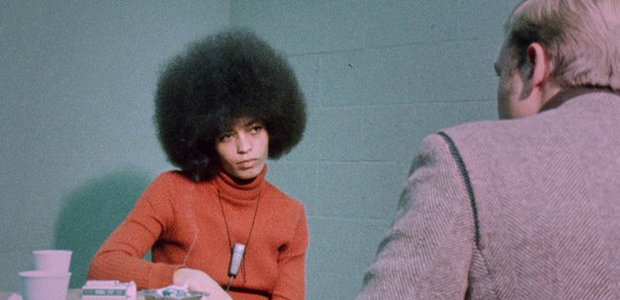Showing @ Filmhouse, Edinburgh, until Thu 1 Dec
Göran Olsson / Sweden / 2011 / 96 mins
The word revolution has long since had its definition criticised: is it a term describing ideas and visions as Angela Davis believed or does it define the actual act of militant protest? As Swedish director Göran Olsson examines the Black Power Movement in the USA, his documentary suggests it is a power which lies dormant in the souls of those who are prepared to fight for equality, justice and freedom. After finding a wealth of material shot between 1967 and 1975 by Swedish journalists in America, Olsson composes the photo-interviews, street level protest videos and rally footage into a delicate mosaic of the fearless political struggle.
The camera almost becomes a character itself in Olsson’s film, as the 16mm lens which the movement was originally captured through provides a peering, intimate portrait of so many oppressed members of the Black community. Contrasted against the film’s soul and funk soundtrack, Olsson manages to paint a nostalgic picture of strength and unity while dropping into the actions of more militant groups such as the Black Panther Party. In many ways, Olsson’s projection of the era follows up from documentaries like Hampton’s epic Eyes on the Prize, adding to a chronology of political tyranny and racial abuse. Yet the documentary lacks the real depth afforded in films such as Bob Marley: The Making of a Legend, with greater analysis over the eight year period needed to investigate the effects of such an age of revolt.
Yet one scene in particular stands out: as Swedish journalists are granted unprecedented access into Angela Davis’ prison cell (she was unlawfully incarcerated for murder), she calls out for greater awareness of the injustices facing Black people in America and how violence has surrounded them throughout their lives. Not just that, she calls for a civil movement which will educate everyone on the planet, create harmony between all and end violence; a message which resonates as loudly today as it did on the streets of 60s Harlem.
For more information, see the Black Power Mixtape website.


Comments